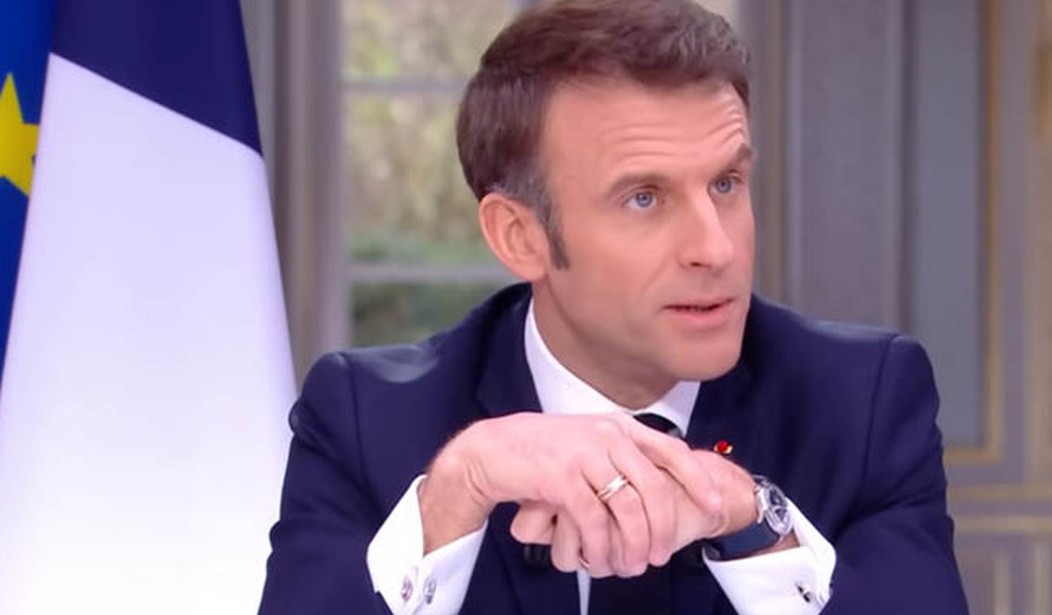France held the snap elections called by President Emmanuel Macron this weekend amid a steady buzz of rumors and polling suggesting that Marine Le Pen's right-wing National Rally was set to sweep into power. But when the dust settled, the anticipated shift in power hadn't taken place. The National Rally greatly increased the number of seats they hold in the National Assembly, but a broad leftist coalition of parties eeked out the victory, with Macron's centrists coming in second. This leaves the French legislature with no clear ruling coalition, a situation unique in modern French history. The government could be left in what amounts to a gridlock. All of this is unfolding as the country remains embroiled in a variety of protests that have been keeping the police working overtime and unrest continues to grow. (Associated Press)
Election results show French voters have chosen to give a broad leftist coalition the most parliamentary seats in pivotal legislative elections, keeping the far right away from power. Yet no party won an outright majority, putting France in an uncertain, unprecedented situation.
President Emmanuel Macron ’s centrist alliance arrived in second position and the far right in third — still drastically increasing the number of seats it holds in the National Assembly, France’s lower house of parliament.
No clear figure has emerged as a possible future prime minister. Macron says he will wait to decide his next steps, and heads to Washington this week for a NATO summit. The new legislators can start work in Parliament on Monday, and their first new session starts July 18.
French Prime Minister Gabriel Attal immediately tendered his resignation after the results were announced. But in another unprecedented move, Macron refused to accept his resignation. Attal has offered to stick around until after the Olympic Games in Paris, but it's unclear if he will remain much longer after that. French laws of succession are a bit hazy in this regard, and Macron doesn't have a deadline for when he must announce a new Prime Minister and he may not have to announce one at all.
The bottom line is that none of the three coalitions is close to having the 289 seats out of 577 required to establish a majority in the National Assembly. Two of the three coalitions could decide to work together to get something done, but France is even more divided these days than the United States in some ways. The far left supports Hamas in the war in Gaza while the National Rally alliance supports Israel. They are similarly divided over support for Ukraine in its war against Russia. A large battle over changes to the tax code is looming and there are significant internal divisions over what to do about the flood of migrants that have been swarming into the country. In many ways, France is currently a mirror of the political situation in America.
Macron himself is not in any personal political jeopardy at the moment. His term runs until 2017 and he has already stated that he does not intend to step down ahead of schedule. But the lack of a Prime Minister is a serious issue. He is the only person allowed to introduce new bills in the National Assembly for debate and a vote. In other words, if there is no Prime Minister, there can be no new laws implemented and the current, unsettled state of affairs will remain stagnant.
Emmanuel Macron had been working on a plan to make revisions to France's unemployment benefits to ease some of the strain on the nation's budget. This plan has been wildly unpopular on the left, making that coalition less likely to be inclined to work with him. But Le Pen's National Rally finds Macron's policies far too liberal. They want to see the country's resources focused on French citizens, not migrants or aliens. They are unlikely to form any sort of alliance with the President either. So where does France go from here? We're unlikely to see another "storming the Bastille" moment any time soon, but Emmanuel Macron's power will likely be seen as being significantly diminished after this. He will continue to retain control of most aspects of foreign policy and the French military, but his domestic agenda my wind up in the deep freeze.








Join the conversation as a VIP Member